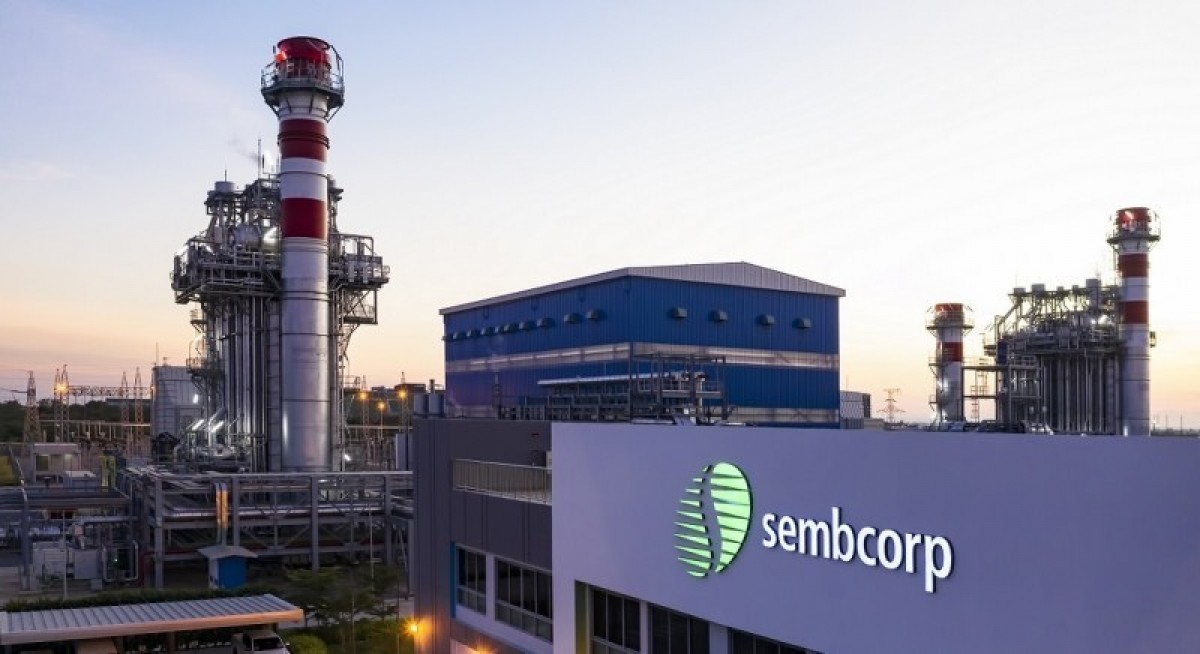How does Sembcorp make money?
Sembcorp Industries groups its businesses into five main segments, reflecting its strategic “brown to green” transformation towards a leading pan-Asian provider of sustainable solutions. The segments are gas and related services; renewables; integrated urban solutions; decarbonisation solutions; and other businesses and corporate.
The net profit from the gas and related services segment saw a minimal decrease from $339 million in the first half of 2024 (1H2024) to $330 million in the current period. This was mainly due to lower profit margins, partly offset by new contracts that helped stabilise overall performance.
The renewables segment, which is the company’s primary growth engine, shows significant profit acceleration, with net profit rising 27% y-o-y, driven largely by strong performance in India. This growth is underpinned by revenue from solar, wind, and battery storage projects, many of which operate under long-term power purchase agreements.
See also: New Keppel’s monetisation plans ensure more special dividends
One notable area of growth is the company’s strategic positioning to capture data centre demand in Batam, Indonesia. With the global rise of artificial intelligence and cloud computing, this opportunity places Sembcorp at the heart of a high-growth, energy-intensive sector, further aligning with the company’s long-term expansion plans.
Lastly, the other businesses and corporate segment encompasses revenue streams from supporting activities such as specialised construction and minting, as well as the costs and results associated with the group’s captive insurance, financial services, and core corporate administration.
The gas and related services segment continues to form the largest portion of revenue, underscoring its role as the financial backbone of the company’s ongoing green transformation.
See also: Singtel straps on more engines for growth beyond 2028
Sembcorp’s financial performance
Below is a summary of key figures from Sembcorp Industries’ 1H2025 financial results:
- Revenue: Decreased 8% y-o-y, from $3.2 billion to $2.94 billion
- Net profit: Down 1% to $536 million
- Cash and cash equivalents: $879 million
- Long-term loans and borrowings: $7.7 billion
- Cash from operating activities: Rose almost 30%, from $517 million to $672 million
- Free cash flow: Increased from $927 million to $1.31 billion
Revenue has been trending down in recent halves due to a combination of restructuring (“brown to green” strategy) and lower revenue from gas and related services.
Despite the decline in top-line figures, operating income and diluted earnings per share have held steady, demonstrating that the company continues to operate efficiently and maintain its profitability.
Outlook
The “brown to green” transition strategy appears to be gaining traction, with the renewables segment contributing an increasingly meaningful share of total revenue.
For more stories about where money flows, click here for Capital Section
Challenges
Sembcorp’s main challenges are centred on successfully managing its transition to green energy while navigating market and financial risks.
1. “Brown to green” transition risk
- Execution and value risk: The company’s aggressive target of achieving 25 gigawatts (GW) of renewables capacity by 2028 introduces risks of overpaying for acquisitions or encountering integration issues.
- Geographic exposure: A heavy focus on emerging markets such as China, India, and Southeast Asia exposes earnings to regulatory changes, geopolitical tensions, and currency fluctuations.
- Infrastructure gaps: Rapid growth in renewable projects, particularly in China, increases exposure to grid bottlenecks, which may lead to higher curtailment rates (rejected power output).
2. Market and price volatility
Gas and power pricing: The relatively stable gas segment still faces exposure to volatile wholesale electricity prices in Singapore and unpredictable liquefied natural gas (LNG) and piped natural gas (PNG) feedstock costs globally.
3. Financial pressures
Debt and capital cost: Funding large-scale renewable projects has resulted in a higher debt-to-equity ratio, which could tighten financial flexibility if borrowing costs rise.
4. Geopolitical and operational risks
Overseas stability: Operations in certain markets, such as Myanmar, face risks from civil unrest and political instability, which could lead to operational disruptions.
Valuation
Since Sembcorp announced its restructuring in 2021, its share price has trended upward — reflecting investors’ confidence in the company’s green transition and operational execution.
While revenue has dipped, improvements in operating income, cash generation, and free cash flow suggest that Sembcorp’s business is becoming more efficient and resilient. Going forward, the renewables segment is expected to play an increasingly significant role in driving top-line growth.
Operational efficiency is a solid foundation, but sustainable long-term growth will depend on Sembcorp’s ability to scale its renewables business effectively without compromising margins.
From a technical standpoint, the share price currently sits comfortably within its long-term weekly uptrend channel at $6.23 (as of Oct 6, 2025), which may present an attractive entry point for both investors and traders.
Conclusion
Sembcorp Industries stands at a critical juncture in its transformation journey. The company has proven its ability to maintain profitability amid restructuring and shifting energy dynamics. Its strong free cash flow and disciplined capital management underpin confidence in its ongoing transition.
At current levels, Sembcorp appears technically attractive and fundamentally supported. The key determinant of future success will be its execution in delivering consistent revenue growth from renewables while preserving operational efficiency. If it continues on this trajectory, Sembcorp is well-positioned to strengthen its role as a leading force in Asia’s green energy transition.
Chua Minghan, CFA, is head of HQ dealing team at Phillip Securities




